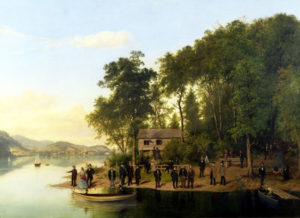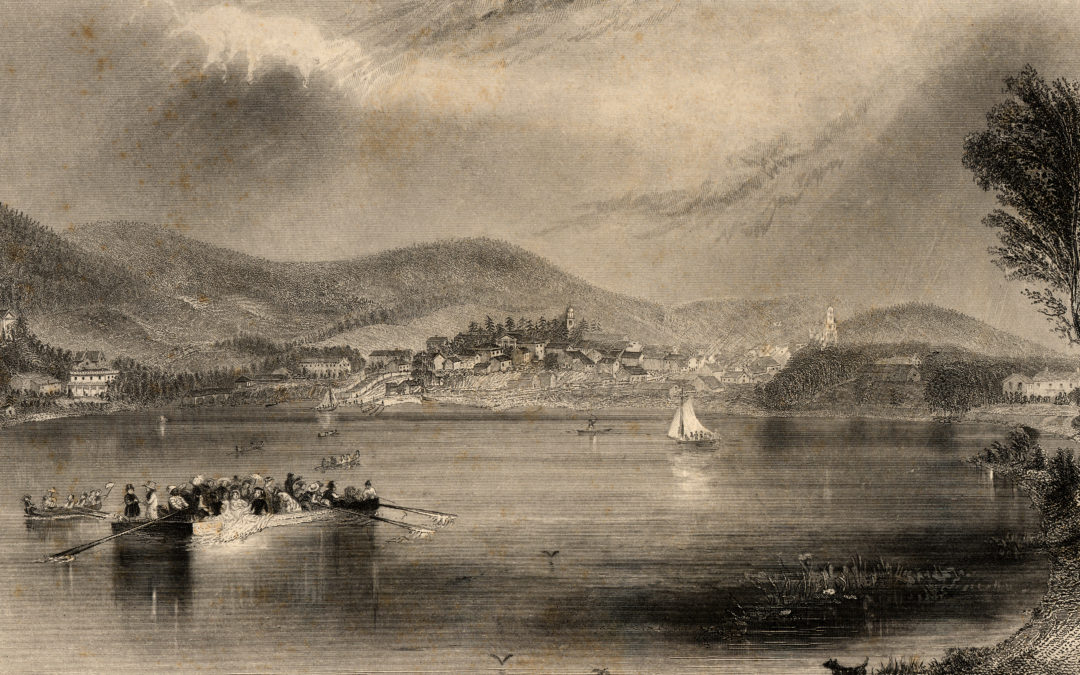After living abroad for eight years, James Fenimore Cooper regarded Cooperstown’s townspeople as his social inferiors. The locals understood him to be a snob. The matter became contentious when the locals contested Cooper’s ownership of The Point, a small promontory on Lake Otsego used as a public park in his absence. To make their case for ownership, the Effinghams host a picnic at The Point, which Eve Effingham, the novel’s heroine, remembers The Point as a lovely “spot where we have long been accustomed to resort for picnic[s].” her snobbish father, however, calls the outing a “rustic fête.”

Louis Rémy Mignot and Julius Gollman. Three-Mile Pont (1850c.).Oil on canvas. Cooperstown: New York State Historical Association, Fenimore Art Museum
Though The Point is accessible by land, the Effinghams hire two scows to row across the lake. They bring along domestics to cook and serve as a show of their status. To be stylish, they serve on the grass, and when the townspeople grumble, the Effinghams snicker. They “were not to be taught . . . how a rustic fête so particularly their own ought to be conducted, and the attendants were directed to spread the dishes on the turf. Around this spot, rustic seats were improvised, and the business of restauration proceeded.”
Cooper’s “customary repast” at the fête is never divulged. In life, he was partial to fish stew. According to Cooper’s daughter Susan, he sometimes cooked stew himself, but it was more likely prepared by Joe Tom, who also operated a scow for transport on the lake.
Featured Image: J.I. Pease. Engraver. Otsego Lake, Residence of the Late J. Fenimore Cooper, Cosmopolitan Art Journal (1860). The Effinghams might have used a scow like this to get to their “rustic fête.”
See James Fenimore Cooper. Home as Found, Sequel to Homeward Bound, The Complete Works of James Fenimore Cooper. A comic New York: G.P. Putnam’s Sons, 1838

